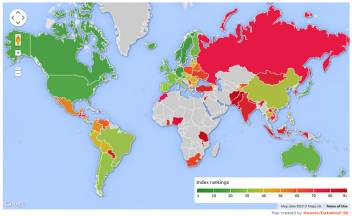 The United Nations Population Fund (UNFPA) recently published a report “Population and sustainable development in the Post-2015 agenda” recommending the post-2015 framework systematically take into account population ageing.
The United Nations Population Fund (UNFPA) recently published a report “Population and sustainable development in the Post-2015 agenda” recommending the post-2015 framework systematically take into account population ageing.
HelpAge contributed significantly to the meetings and online consultation on which this report is based. Needless to say, we are very pleased that our recommendations have been heard!
Population ageing: A celebration and a challenge
The report captures the fact that population ageing should be seen both as an opportunity and a challenge. It also mentions it is crucial for sustainable development to address population ageing:
“Population ageing […] provides opportunities for socioeconomic development, provided that older persons benefit from good health, and that they have economic security, and are empowered to actively participate in economic, social and political life.
“It is important to recognize, for example, the contribution of older persons as providers of care. In many countries they support parents in raising children, and in skipped generation households affected by HIV and AIDS they often replace parents entirely.
“At the same time, countries need to ensure that national health care delivery systems are capable of delivering services to a growing older and frail population, and that adequate social protection schemes are in place to ensure that older people do not fall into poverty.” (p. 13)
More life course approach please
Despite the report’s positive elements, I think there is still a need in the report’s key recommendations to take a more comprehensive and holistic look at all the different stages of a person’s life. In the “Human development throughout the life course” chapter, the report refers mostly to younger population groups and how these have to “cater for an increasingly elderly population.” (p. 17)
Older people are able and willing to work, however age discrimination and few work opportunities mean that old age is often inherently tied to fewer economic opportunities. Loss of work and increased frailty associated with age can lead to loss of status and exclusion; therefore efforts to ensure that older people can participate in social and economic life are equally important.
The age bulge
The world population is experiencing an “age bulge”, when the older population increases in size relative to younger people. The only way countries can begin to address the social and economic implications of this shift is to collect accurate data on ageing. Based on this, adequate policy responses to ageing should be implemented.
HelpAge’s Global AgeWatch Index ranks countries according to the social and economic wellbeing of older people and takes us further in our journey to ensure more and better data on older populations.
It is therefore excellent to see that the report’s recommendation to: “Disaggregate relevant demographic, social and economic data by age, sex, geography and other demographic information to monitor progress towards internationally agreed development goals.”
What next?
- Visit the post-2015 section of our website and read our key messages.
- Follow the discussion online @helpage and via the hashtag #post2015.
